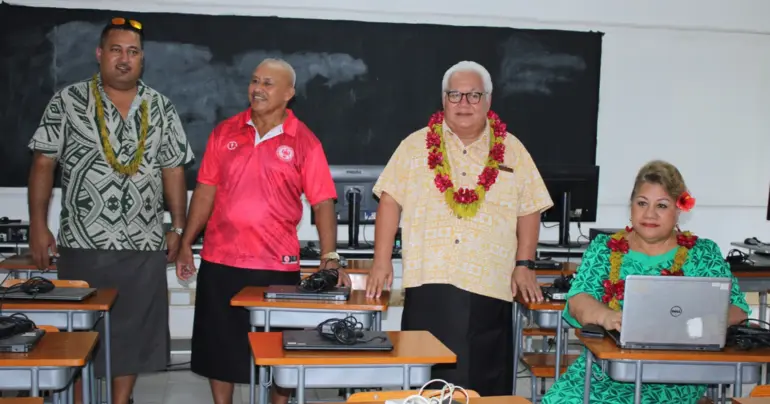Pacific Central Bank Governors meet
Central Bank Governors from the Pacific and their delegation are gathering in Samoa this week for a three-day conference, with yesterday’s focus on Fintech and financial inclusion in the region.
Joined by international monetary agencies and partners, the conference is being organised by the Central Bank of Samoa, in partnership with the International Monetary Fund (I.M.F.) and the Asian Development Bank, and is held at the Return to Paradise Resort.
The Bali Fintech Agenda is a set of policies developed by the I.M.F. and the World Bank in one of their recent annual meetings with one emphasis on financial inclusion, and the conference in Samoa is a way for regional delegation to dialogue and analyse how to better implement the Fintech Agenda in their financial inclusion strategies, and guard against potential risks in the region.
“Bali Fintech Agenda covers three basic areas. One is a way to enable Fintech in terms of innovation strategy, second is what sort of regulations you need to ensure against the risks, and third, which is part of what this conference, is about promoting greater regional and global cooperation, sharing information on Fintech and ways to use it appropriately,” said I.M.F. Deputy Director Asia and Pacific Department, Kenneth Kang.
Speaking on potential risks associated with Fintech, Mr. Kang said like any kind of financial innovations, Fintech has a lot of promises for increasing access to financial services, but it has to be managed properly.
“So it’s important to make sure you protect consumers, that you should safeguard financial stability, and that you allow for proper competition at a level playing field. So the idea is to give a space for innovation to take place and make sure as well that the space is well protected, well-guarded so it does not affect the rest of the financial systems in an inappropriate way,” he told the Samoa Observer.
I.M.F. Small States Division Chief (Asia Pacific Department), Allison Stuart said the meeting looks at addressing financial policy issues that plague the region and identity where risks exist.i
“In the Pacific, the I.M.F. has also been active in looking at the problems that a number of countries have been facing in terms of maintaining correspondent banking relationships, which is very important in terms of the number of countries that are quite reliant on remittances – that’s both seasonal workers and the cost of sending those remittances has been very high,” Ms. Stuart said.
“So the thinking here is to look at financial inclusion, Fintech issues more generally, to see if Fintech can be part of the solution recognising that it’s not the only solution, and that’s an issue such as financial literacy and strengthening of countries anti-money laundering, and encountering financing terrorism frameworks also play apart.”
Mr. Kang said a message that the workshop is trying to send out is that there is a lot that can be done in the Pacific on Fintech to improve financial inclusion.
“Simple things like developing a digital identification system, improving payments and settlements, mobile payment experiences in other countries, like in Kenya, what can the Pacific learn from that to really improve financial access in the Pacific.
“This (Fintech) is not an end all solution to the problem here, there’s a lot that can be done, even before considering these type of exotic solution, so one has to be very careful and pragmatic when looking at the various types of proposals out there, but there are already proven applications that can work, including in the Pacific for enhancing financial inclusions.”
Delegations from Samoa, Fiji, Papua New Guinea, Solomon Islands, Tonga, Timor Leste, Vanuatu, New Zealand and Australia are present at the event.
The 33rd Annual Pacific Central Bank Governors Meeting begins today under the theme “Strengthening Collaboration”.











